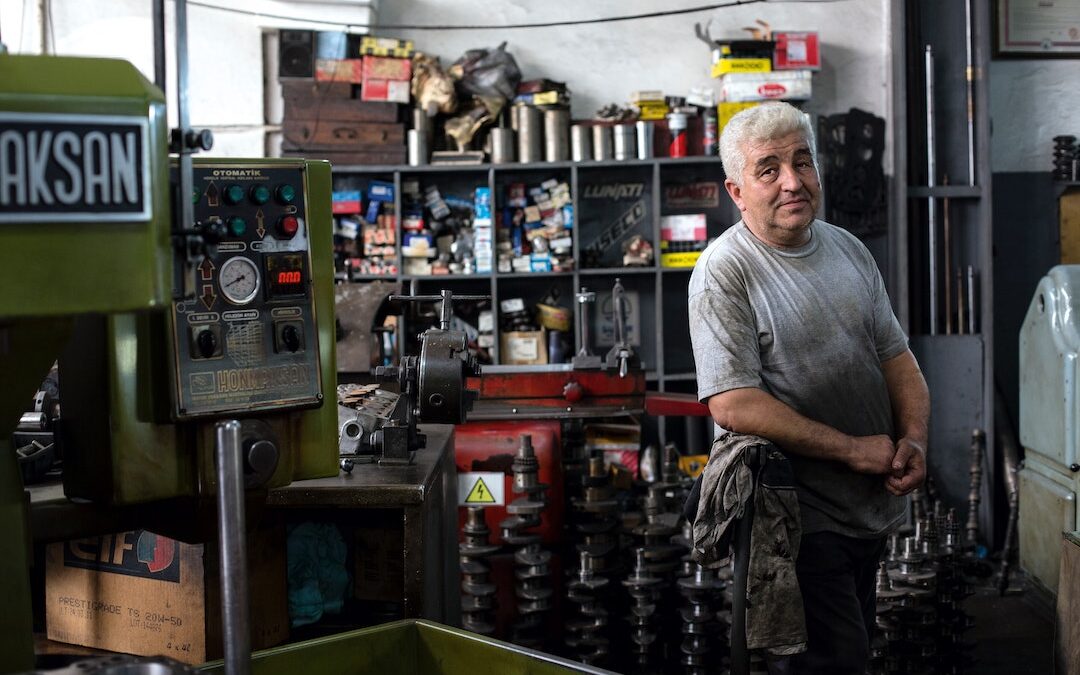Small businesses struggle at the best of times so it’s no secret that over a third of small and medium-sized enterprises (SMEs) in Australia are feeling pessimistic about how they’ll survive the next three months.
Dr Andrei Lux and Dr Flavio Macau from Edith Cowan University researched 223 business owners. Their findings reveal that when an SME is struggling it’s not only due to an individual entrepreneurs’ personal resources and capabilities; the local business environment also plays a major role.
The Australian Bureau of Statistics’ latest survey of COVID-19 business impacts shows 35 per cent of small businesses predict it’ll be difficult to meet financial commitments (compared to just 18 per cent of large companies).
There are four significant issues Dr Lux and Dr Macau believe governments need to focus on:

SMEs need good advice
“Our research shows that access to professional advice, including tax, legal and accounting, makes a significant difference to small business outcomes. During an economic downturn, spending on these services can be some of the first things to go, at a time when they’re needed most, as business owners face tough decisions, such as whether to borrow to keep their company afloat or to cut their losses,” says Dr Lux, lecturer in Leadership and Organisational Behaviour.
“Governments will need to ensure that professional services are available and accessible to small businesses on favourable terms.”
According to Dr Macau, sometimes the advice is there and small businesses don’t know about it or don’t know how to access it.
“Business owners may know about the advice and think it is too complicated, off-limits or rigged. Governments could step up and teach business owners even more on how to take the most value from the services that are available to them,” says Dr Macau, senior lecturer in Supply Chain Management and Global Logistics.
“It can be frustrating but like Sisyphus, it is governments’ job to roll the boulder endlessly up the steep hill.”
Promote mental health
The pandemic has already put the spotlight on mental health around the world, as many are struggling to cope with the confines of a lockdown. Research by Dr Macau and Dr Lux shows that business owners’ mental resources have a direct effect on their firm performance.
“The mental strain of the pandemic, lockdown, and subsequent economic downturn, is making things even harder for small business owners. That’s why it is particularly important for governments to support small business owners’ mental health as part of their long-term recovery plans,” says Dr Lux.
“There is much talk on how the pandemic affects our mental health but not that much on how we can persevere and heal. Local government support groups could help business owners facing what possibly is the greatest professional challenge of their lives,” says Dr Macau.

Government procurement
Dr Lux and Dr Macau maintain small businesses should be given a real advantage in procurement and that all policies and processes are clear, protective and accessible to the “small guys.” Efforts should be made to ensure procurement policies and processes are not a “maze” that ends up only helping the large corporations.
Small Business and Family Enterprise Ombudsman, Kate Carnell, has proposed that federal government contracts worth up to A$10 million go through a small business panel as part of the tender process. Dr Lux and Dr Macau agree with Ms Carnell’s statement that “lowest cost is not always the best value for money.”
Encourage people to buy local
Buying local is more important now than ever before. According to Dr Lux, the reason is explained by the ‘velocity of money’.
“Let’s say you get paid $10, and you use that $10 to buy dinner from a local take-out, that pays the chef’s wages, who then uses that $10 to take an uber home, the uber driver pays that $10 to a babysitter, who then uses it to buy groceries. That $10 has produced $50 worth of economic value for your community,” says Dr Lux.
But, Dr Lux claims there are two big problems with this:
“You buy from a company based overseas—the same process happens, but over there, and that $10 (and the subsequent $50) have left our community. Also, if you buy from a big business, even one that’s Australian owned and operated; some of that process still happens because those goods/services are provided by Australian workers, but wealthy business owners tend to just add profits to their bank account—and again take that money out of the economy. That’s why it’s so important to spend in a recession, and to spend at local small businesses, so that your $10 adds $50 to our economy.”
According to Dr Macau, buying local is best for everyone.
“The best-case scenario is when you buy local because it is the best offer balancing price, quality, flexibility, reliability and speed. Where possible, local must be stimulated to excel globally, expanding its horizons to not only guarantee that the money stays local but also that it is attracted from the outside to the community,” says Dr Macau.
To find out how SMEs are being impacted by recent federal budget announcements, click here.

